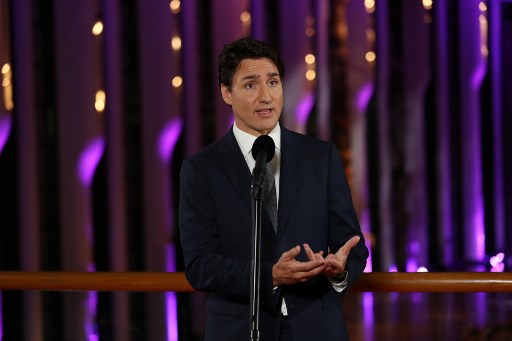
GATINEAU, Canada (AFP) — Justin Trudeau was labelled a “compulsive liar” by his main rival during the final leaders’ debate before upcoming Canadian elections, in which the prime minister was forced to defend his environmental policies.
The liberals and conservatives are neck-and-neck according to polls, with the general election set for October 21.
The French-language debate had a more relaxed atmosphere than the previous one in English on Monday, where scathing personal attacks were exchanged.
Trudeau has made the environment a key priority but was attacked for his controversial decision to approve a pipeline expansion project to help export Canadian oil overseas.
“We have to stop these pipelines and fracking all across Canada,” said the head of the Greens, Elizabeth May.
“The young Swedish activist Greta Thunberg is right: our house is burning, how dare you?”
Trudeau has said profits from the pipeline will be reinvested in the environment.
Faced with Trudeau and Conservative leader Andrew Scheer, a strong supporter of the fossil-fuel industry, New Democratic Party leader Jagmeet Singh demonstrated once again his talent for humorous barbs.
“Here we have Mr Pipeline and here we have Mr Pipeline,” he said. “My name is Jagmeet Singh and I will never impose a pipeline.”
Trudeau accused Scheer of “proposing a lowering of taxes for the richest”. He added that the Conservative Party had still not unveiled its manifesto with costings, asking: “Where is your plan?”.
“You are a compulsive liar,” Scheer replied, in one of the evening’s few cutting comments.
The Conservative leader — who appeared less at ease in the French-language debates — vowed to balance the budget within five years.
Scheer said the tax cuts he has proposed to the middle class would in part be financed by cutting 25 percent of Canada’s international aid.
With polls indicating the liberal and conservative parties will each take 31 percent of the vote, projections suggest the upcoming election will result in a minority government.
This means that the future prime minister will have to form an alliance with another party.
© Agence France-Presse








